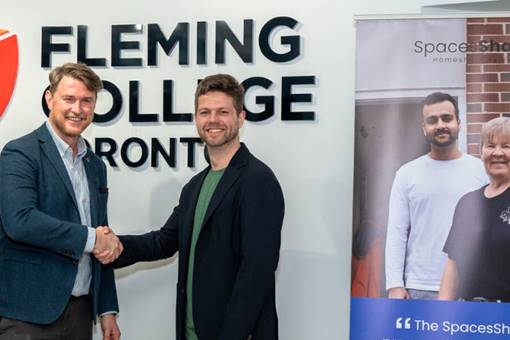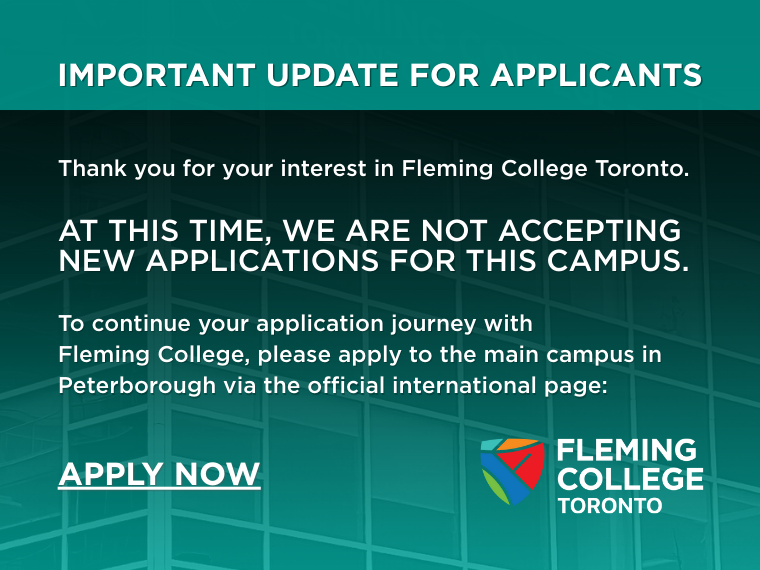A Guide to Self-Care for International Students
- September 14, 2023
- Lifestyle

Reading Time: 3.5 Minutes
Being an international student is an exciting adventure filled with new experiences, cultures, and opportunities. However, amidst the hustle and bustle of academia and adapting to a foreign environment, it’s easy to forget one crucial aspect – self-care. In this blog, we’ll explore self-care, its significance, and several types to help you lead a healthier and more balanced life.
What is Self-Care?
Self-care is the intentional practice of caring for your physical, emotional, and mental well-being. It involves recognizing your own needs and taking steps to meet them. While it’s often associated with pampering oneself, self-care goes far beyond spa days and indulgent treats. It’s about maintaining a holistic balance in your life.
Taking the first step towards self-care can be a challenging endeavour. Fleming College Toronto has a dedicated Health and Wellness team committed to providing students with the essential support necessary to cultivate a healthy and balanced lifestyle:
- Support Sessions: Students can avail themselves of a 30-minute session to address their mental health concerns and receive guidance on accessing the appropriate resources.
- Counselling: Through our partnership with Keep.meSAFE, students have round-the-clock access to mental health support.
- Workshops and Events: Throughout the academic year, Fleming College Toronto hosts a variety of informative workshops and events tailored to promote self-care and mental well-being. These include Wellness Week, puppy therapy sessions, and more.
Why is Self-Care Important?
Self-care is not a luxury; it’s a necessity. Here’s why:
Stress Reduction: The demands of being an international student can be overwhelming. Self-care helps reduce stress, making coping with academic pressures and cultural adjustments easier.
Improved Mental Health: Regular self-care can boost your mental health. It helps in managing emotional challenges that can arise when studying abroad
Enhanced Productivity: Taking time for self-care makes you more productive. You’re better equipped to focus on your studies when well-rested and relaxed.
Better Physical Health: Good self-care practices like exercise and a balanced diet contribute to better physical health, reducing the risk of illnesses.
Types of Self-Care
Physical: This involves taking care of your body. It includes regular exercise, a nutritious diet, adequate sleep, and good hygiene.
Emotional: This type focuses on understanding and managing your emotions. It includes activities like journaling, therapy or counselling, and spending time with loved ones.
Mental: Mental self-care is about keeping your mind sharp and clear. Engage in activities like reading, puzzles, counselling, meditation, or mindfulness exercises to promote mental well-being.
Social: Building and maintaining relationships is an essential aspect of self-care. Allocate time for social interactions, whether it’s through clubs, sports, or simply hanging out with friends.
Spiritual: For some, spiritual well-being is crucial. This could involve attending religious services, practicing mindfulness, or spending time in nature.
Creative: Engaging in creative pursuits like painting, writing, or playing a musical instrument can be therapeutic.
Frequently Asked Questions (FAQ)
Q: How do I start a self-care routine?
A: Starting a self-care routine begins with identifying your needs and preferences. Experiment with different activities and find what resonates with you. Create a schedule that includes these activities regularly, making them a non-negotiable part of your day.
Q: What is self-care for students?
A: Self-care for students is about consciously taking care of your physical, emotional, and mental well-being while balancing the demands of academic life. It involves activities that help reduce stress, improve mental health, and enhance overall productivity.
Q: How do you teach students self-care?
A: Fleming College Toronto hosts workshops and resources addressing the importance of self-care and offering practical tips on incorporating it into students' lives.
For more information or to learn about resources, visit the Health & Wellness webpage.
Read more blogs
Homesharing Solution for Students: FCT Partners with SpaceShared
Connecting students with hosts for safe, affordable housing.…
The Power of Body Language & Micro Expressions
Learn about the importance of body language and how you can improve your own.…
A Guide to Self-Care for International Students
Explore the diverse types of self-care for a more balanced life.…



